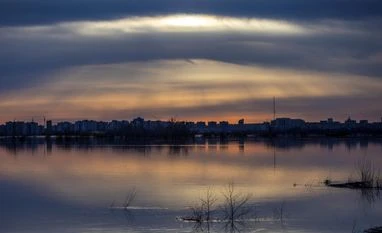Flash floods from heavy seasonal rains have killed at least 68 people in Afghanistan, Taliban officials said Saturday, adding the death toll was based on preliminary reports.
Afghanistan has been witnessing unusually heavy seasonal rains.
In the hard-hit western province of Ghor, 50 people were reported dead, said Abdul Wahid Hamas, spokesman for the provincial governor. He also said the province has suffered significant financial losses after thousands of homes and properties were damaged and hundreds of hectares of agricultural land destroyed following Friday's floods, including the capital city Feroz Koh.
Meanwhile, 18 people in the northern province of Farayab were killed and two others injured on Friday, according to Esmatullah Moradi, the provincial governor's spokesman. Damages to property and land were reported across four districts and over 300 animals were killed, he added.
The UN food agency posted on social media platform X, saying Ghor was the most affected by the floods where 2500 families were impacted. WFP assessment teams are on the ground to deploy assistance, the post said.
The Taliban's government chief spokesman mourned the loss of our fellow Afghans, and urged "responsible authorities ... to provide all necessary support to alleviate the suffering, in a post on X. He also called on our benevolent donors to help and humanitarian organisations to provide the affected communities with aid.
Last week, WFP said the exceptionally heavy rains in Afghanistan have killed more than 300 people and destroyed thousands of houses, mostly in the northern province of Baghlan, which bore the brunt of floods on May 10th.
Survivors have been left with no home, no land, and no source of livelihood, the World Food Organisation said. Most of Baghlan is inaccessible by trucks, said WFP, adding that it is resorting to every alternative it can think of to deliver food to the survivors
The latest disaster came on the heels of devastating floods that killed at least 70 people in April. The waters also destroyed about 2,000 homes, three mosques and four schools in western Farah and Herat, and southern Zabul and Kandahar provinces.
)